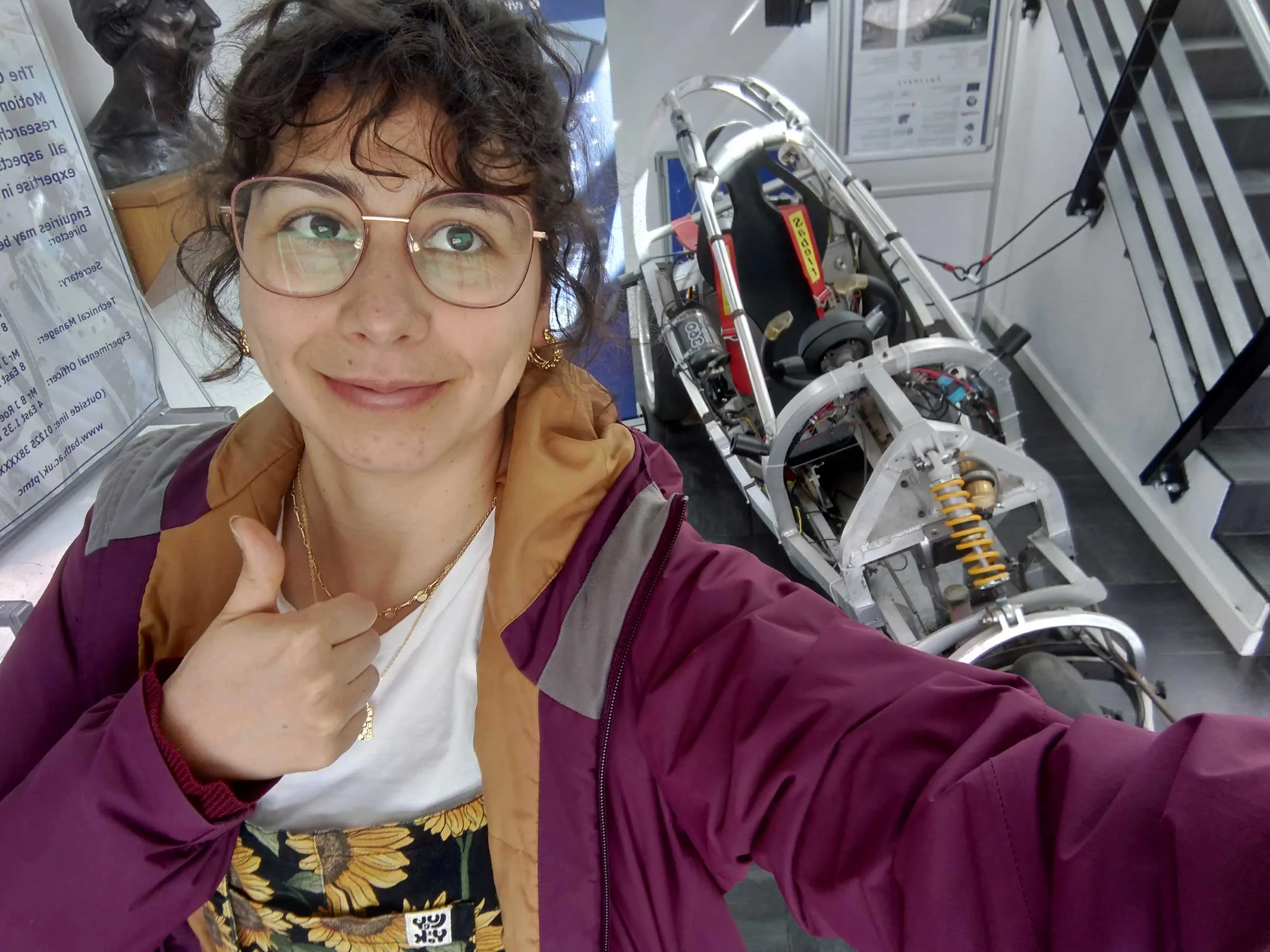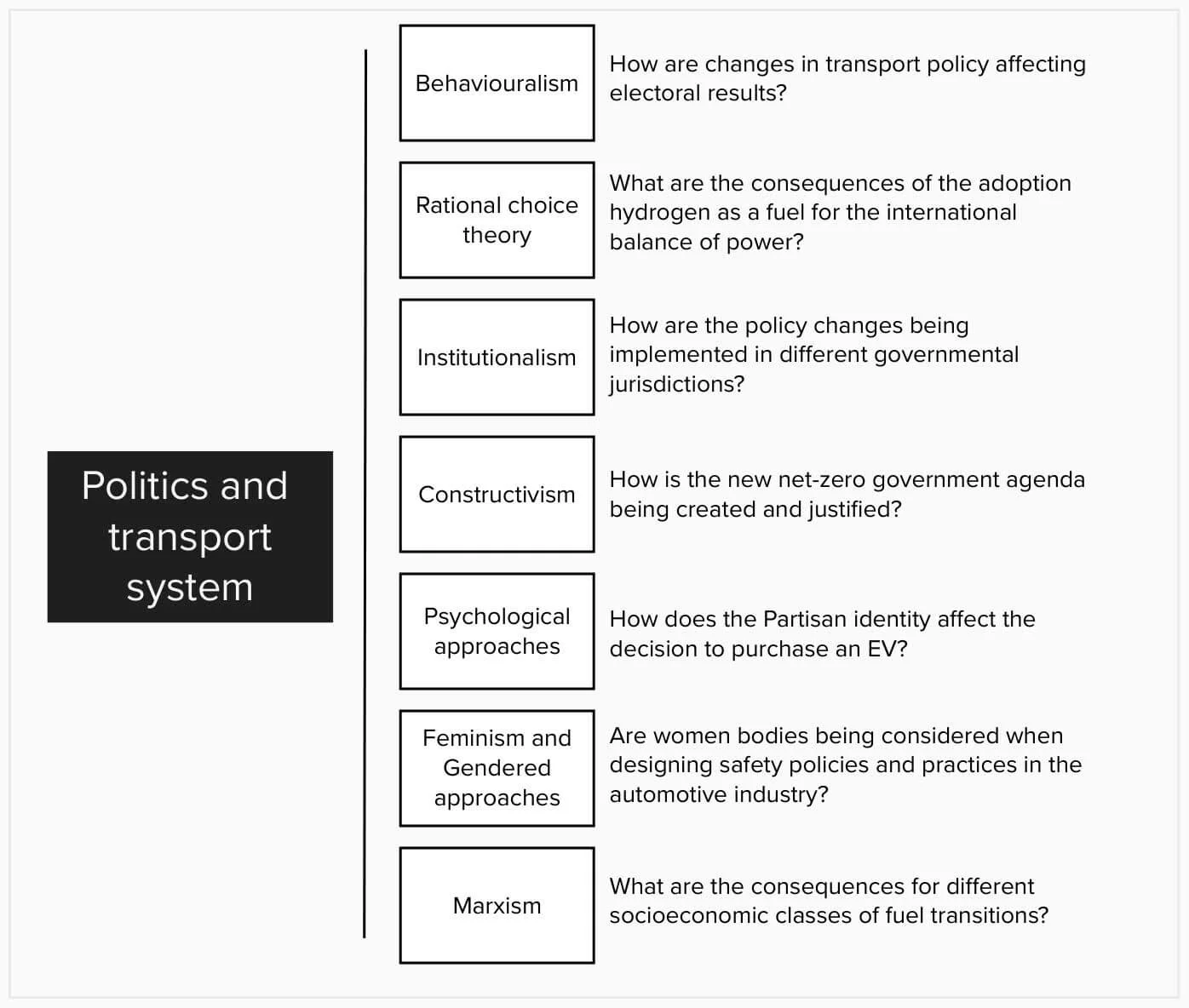A political scientist among advanced propulsion systems.
Posted by: Lucia Burtnik
Career shifts
I have a complicated relationship with disciplines and degrees. I grew up seeing my parents dedicate their lives to one discipline only deviating from it to teach. They got a degree; they got a label that they communicated, and everyone understood. So, imagine my surprise when I finished my bachelor's degree in International Relations and found that it was extremely rare to find job adverts that talked to me. Maybe I need a more scientific background, I thought, and went on to join Political Science (it had science in the name!). But I did not research election results and party politics: I dedicated much of my research on the complex inner workings of innovation in the energy sector in a South American country. It was becoming apparent that the tags did not reflect the possibilities within. So, when after almost a decade working with education programmes and learning experience design (long story), I decided to join AAPS with the hope to contribute tackling the climate crisis, I got a lot of surprised reactions.
"A PhD in Advanced Automotive Propulsion? But you don't even drive!" Was a common answer that raised from family and friends at the time. To be fair, I was a bit as surprised as them as I entered to the building that welcomes you with a scale prototype of a vehicle and an enormous window to what looked to me as the playground of engines. I thought that my background would be of no use here, that I was starting from zero ready to absorb everything. I quickly learnt that I was wrong.

The debates that matter
Fast forward seven months of the first year of the MRES. What I imagined to be full of pistons and transmissions was more of a deep reflection about the dimensions of the challenge of where the future of mobility is going. The “wicked problem” that is more than switching from a combustion engine to an electric motor: the deep interconnections between different stakeholders and their interests, and the social and economic consequences of changes in technology also imply enormous changes in balances of power.
Social sciences, and Political Science in particular, are as crucial to working towards the transition to future mobility systems as the engineers developing the new vehicles. Advancing or limiting the move towards a more sustainable mobility system is a new arena of where power is put to play, an arena where ethical and moral considerations must be brought over and over again because the vehicles we use to move are so much more than just that. The need to move fast is also an acquired right, and a deeply integrated in the way the current capitalist society works. Policy is constantly mentioned as a barrier and an opportunity, but it is common to find it confusing or too dependent on obscure mechanisms.
As an exercise for an essay, I tried to think of research topics from different sub-areas of Political Theory: this is what I came with just a couple of minutes of brainstorming. So much richness!!

Breaking the walls - transdisciplinarity
The transition to a more sustainable mobility system is as much of a political issue as a technical challenge. It requires engineers who develop better and optimised vehicles and objects that allow movement and access, yes; and it also requires psychologists to understand why we choose to one mode of transportation over another. It also needs political scientists, political thinkers, sociologists and philosophers to contribute to make sense of what a transition to a sustainable mobility system looks like for human societies, to better understand and harness the power dynamics shape our common future goals to prevent an even worse climate crisis. The diversity of perspectives is our strongest tool.